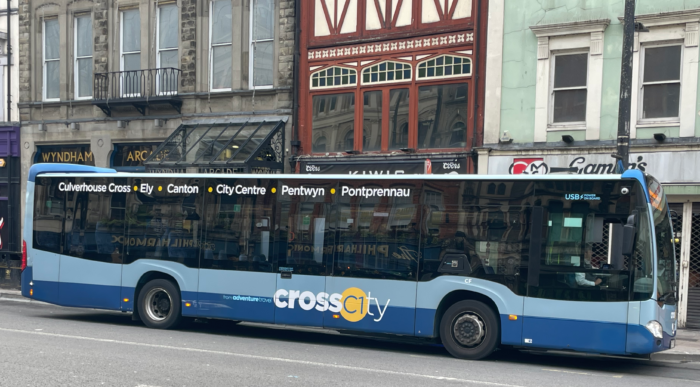 Congratulations to everyone in the United Kingdom on a decisive election result, one that will unleash big changes in the public transport sector. The Labour party, which is on track for a large majority, promises to restore government’s right to manage public transport in the public interest, sweeping away Margaret Thatcher’s vision of public transport as a purely private and competitive business. Even before the election, the dam had already started to break, as the previous Conservative government had allowed Manchester and other big cities to reform Thatcher’s system.
Congratulations to everyone in the United Kingdom on a decisive election result, one that will unleash big changes in the public transport sector. The Labour party, which is on track for a large majority, promises to restore government’s right to manage public transport in the public interest, sweeping away Margaret Thatcher’s vision of public transport as a purely private and competitive business. Even before the election, the dam had already started to break, as the previous Conservative government had allowed Manchester and other big cities to reform Thatcher’s system.
Since 1985 the sort of public transport planning that governments normally do in wealthy countries has been illegal in the United Kingdom outside London and Northern Ireland. Privatization meant that private companies were free to run services whenever they liked, changing them on just a couple of months notice, and could also set their own fares. They kept the profits from high-ridership services but demanded government subsidies for low-ridership but critically needed coverage services. These companies were also too essential to fail: When Covid-19 gutted their fare revenue, government had to bail them out to keep essential services running.
A report by the Center for Human Rights and Global Justice describes the results of Thatcher’s grand experiment:
Privatization has not delivered a service that provides good value for money. Private operators’ primary goal is to earn a profit for shareholders, rather than provide the best possible service. Companies extract profits in the form of dividends, which otherwise could be reinvested in the system. They largely choose to run only profitable routes, resulting in cuts or forcing local transport authorities to step in at additional public cost. And far from taking buses off the government books, privatization has left the public on the hook for billions of pounds a year in subsidies.
Thatcher never imposed her experiment on London, because you simply can’t run a big city this way. At high densities, public transport service is intensely interdependent with other civic functions, especially land use planning and traffic management. Government needs confidence about what the buses and trains are going to do, so that it can provide certainty to developers, planners, and everyone else making decisions about the life and structure of the city. Voters also deserve to know that the service funded by their taxes is designed, operated, and priced in a way that reflects their goals and values.
In the new model, which the British call franchising, there will still be a role for the private operating companies. They’ll be able to compete for contracts to run portions of public transport networks, but those networks will be designed, managed, and marketed by governments. Fares will no longer be the basis of their profit. Instead, they’ll be paid a fair price to drive and maintain the services, enough to give them a small profit margin, and with various incentives and penalties for good and bad performance. Their success will depend on providing good service.
I’ve worked extensively in three countries that have made a similar transition fairly recently: Australia, New Zealand, and Ireland. In all three, I have led the planning of bus network designs for governments that were just starting to take firm control of public transport planning, usually while maintaining a role for the private sector. These transitions have been difficult, especially for the operating companies who must make cultural changes to match their new incentives, but they have made dramatic improvements in service possible. With this background, our firm hopes to find a role in the forthcoming tsunami of bus planning in the UK. In fact, we’d love to have a little office there. For now, I hope UK public transport advocates are enjoying their election night. Soon, the buses may even run late enough for you to get home from the party.
The Privatization described here is exactly what has been being observed in Hong Kong. Both bus companies are continously cutting low-profit local route services and reorganizing resorces to serve high-profit corss-border routes, which leads to dramatic inequality. We HK transit advocates are striving for a REAL franchising model.